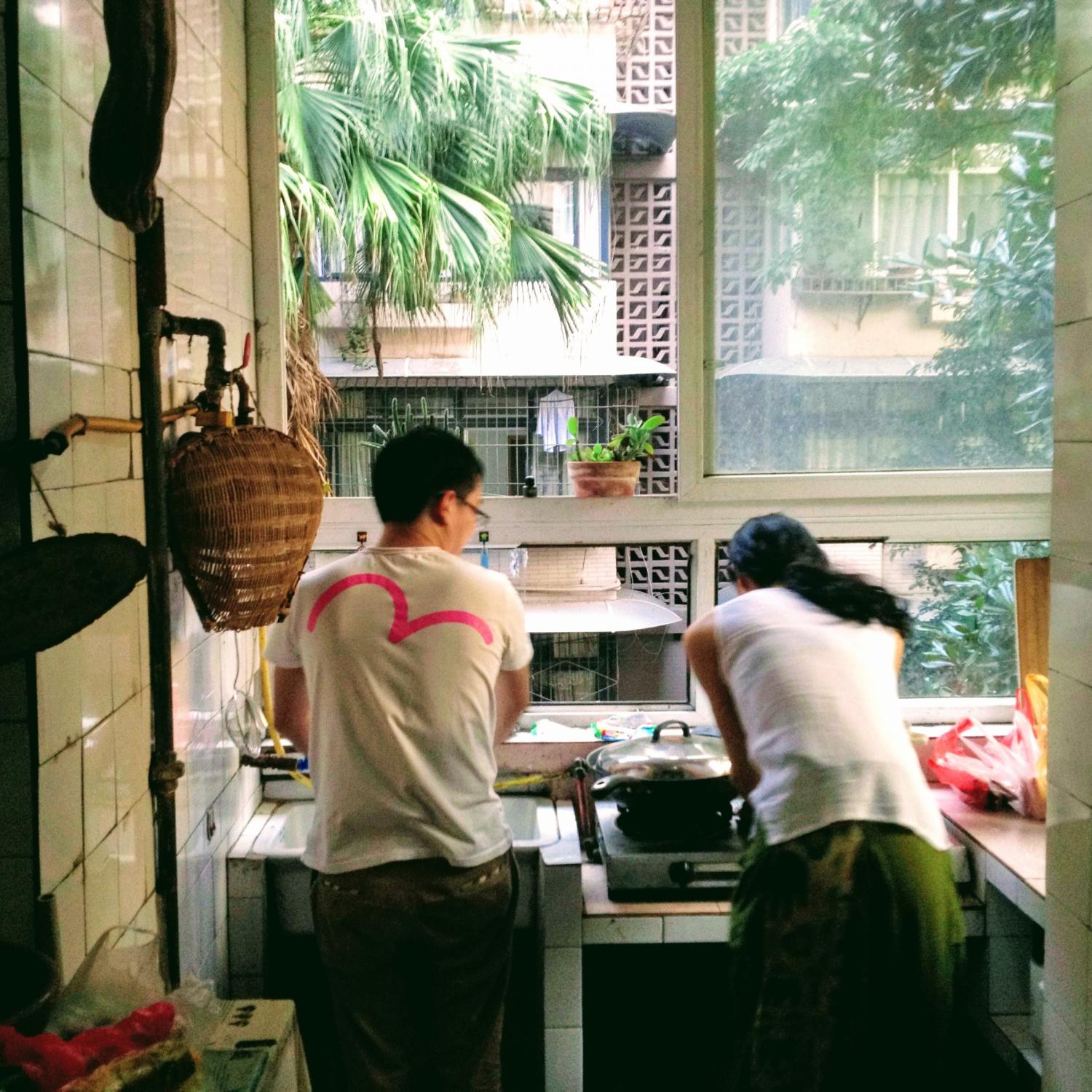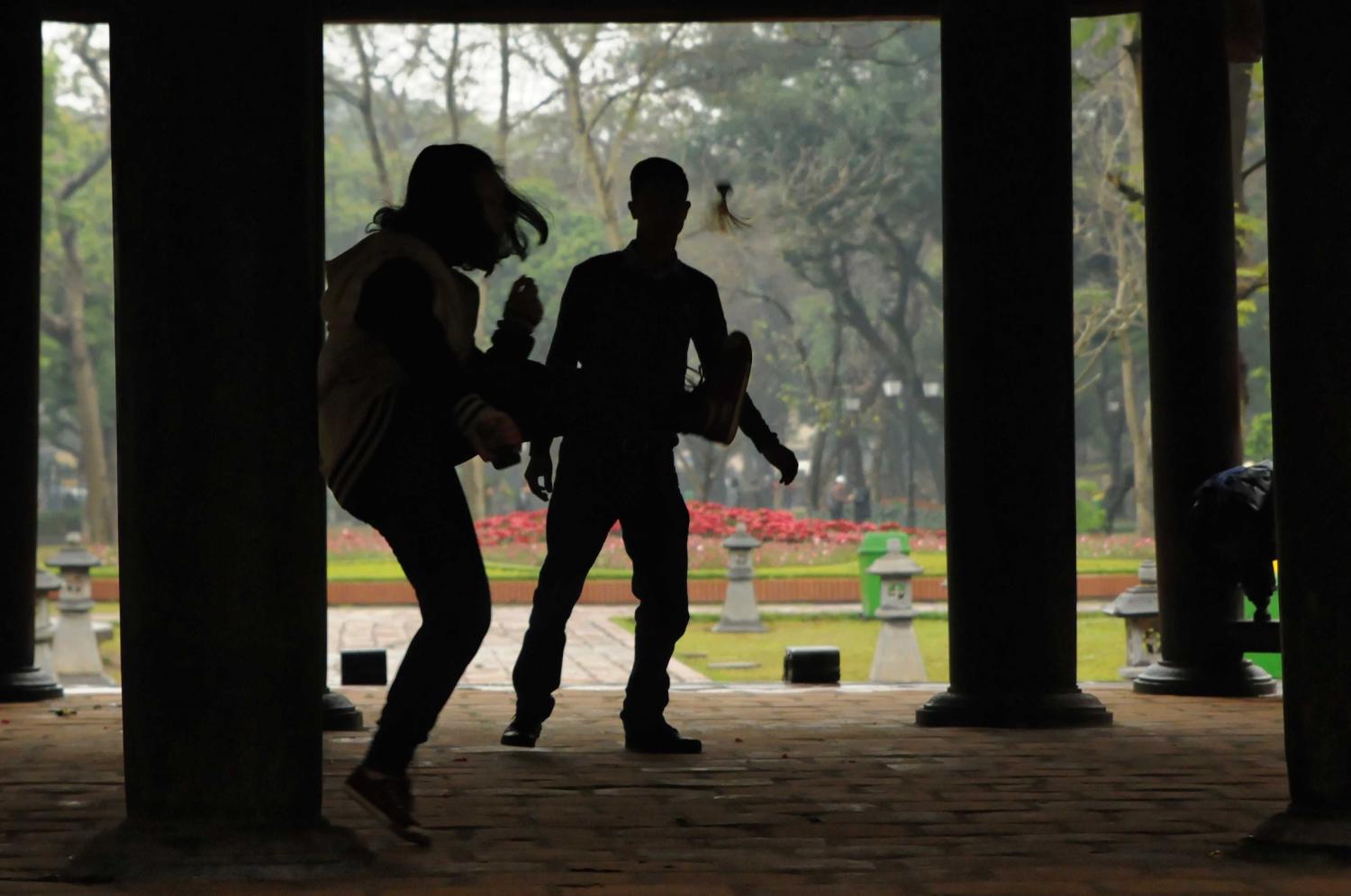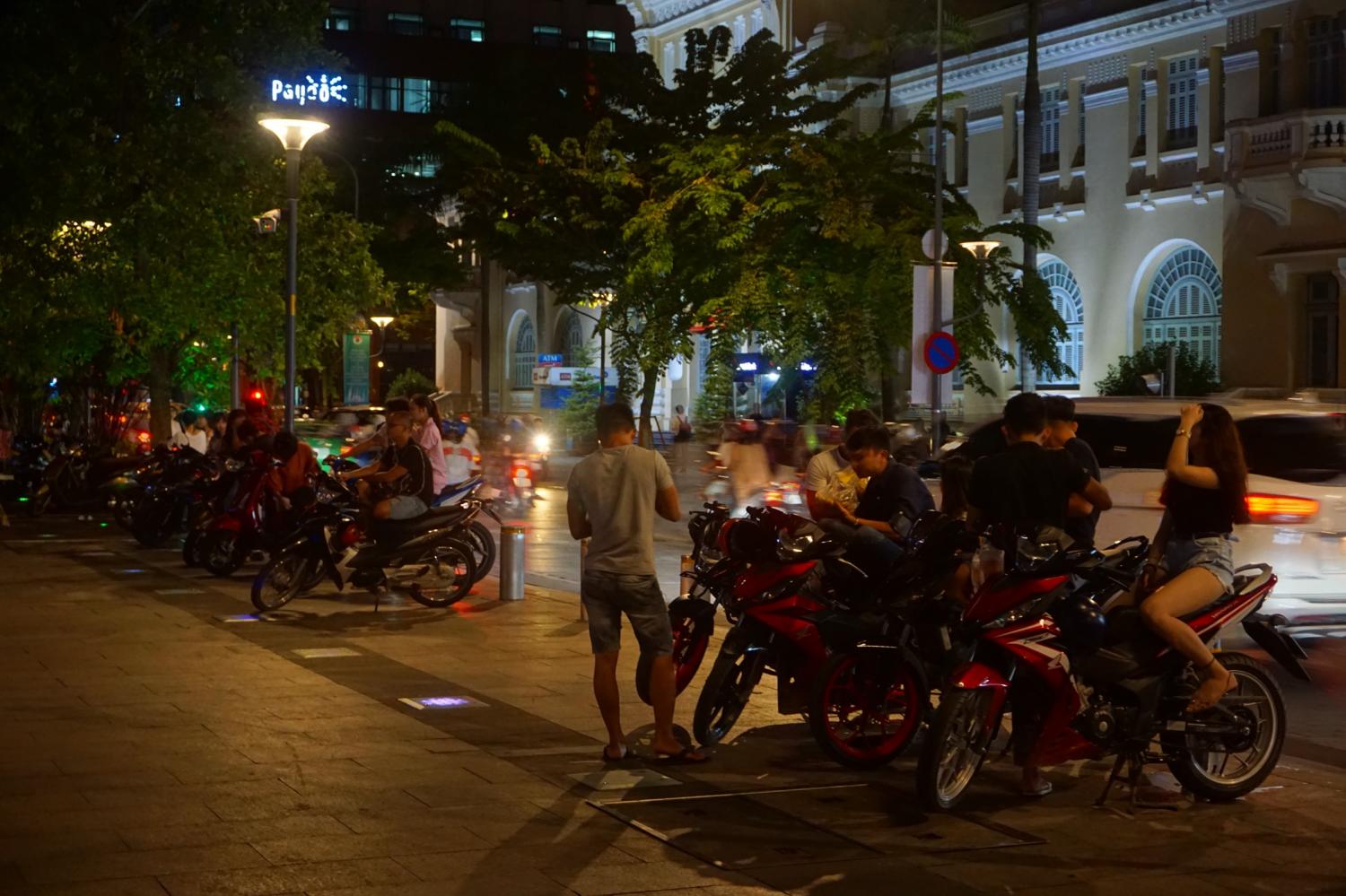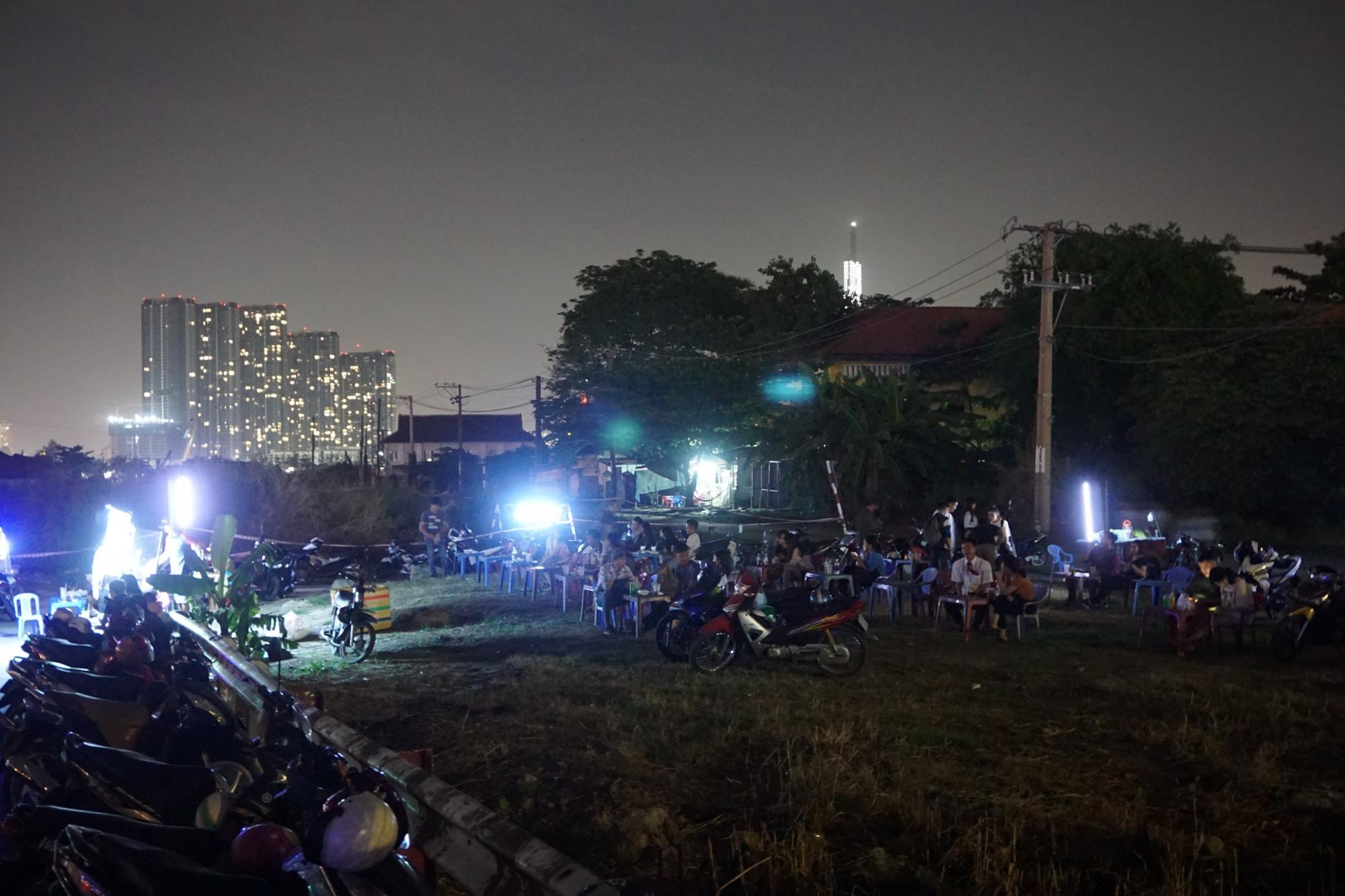Place-making in the city
Although the “green city” has increasingly emerged as a model for urban planning in China and Vietnam, cityscapes remain confronted with the issue of public space as a scarce resource. Urban sprawl in South-/East Asia is often accompanied by commodification and privatization, which limits the amount of recreational spaces accessible for free by city dwellers. Popular spatial practices, however, often evade or exceed these logics of marketization: claiming buildings and parts of parks, or gathering on wayfares for their own uses are common practices among the youths. Appropriation, here, means more than collective presence; it involves the very repurposing of the planned functions of given spaces, revealing the spatial agency of the urban youth.

Spaces for “doing together”

Footwork among spirits

